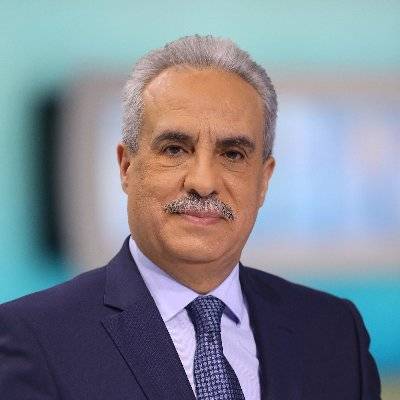Many people in Tunisia are looking for an opportunity to leave the country. Some opt for the dramatic but illegal way using unseaworthy boats that may or may not reach the other side of the Mediterranean; others continue to look tirelessly for another way.
Diaspora Tunisians are not a new phenomenon. In the past, hundreds of thousands of them have gone to work in various European countries, especially France and Italy. Tunisians have also gone to the Gulf since the early eighties, most of them teachers or nursing staff. Those who went to Europe tended to stay there, but those who went to the Gulf were on fixed-term contracts; theirs was very rarely a permanent settlement.
What is new nowadays is the desire of almost all professional groups to emigrate, including highly qualified individuals, very few of whom left in the past. According to a report by AFP, more than 40,000 engineers and 3,000 doctors have emigrated from Tunisia to Europe and the Gulf during the past five years. Countries such as Germany have started to attract many talented young graduates. Of the illegal migrants, more than 16,000 Tunisians have arrived in Italy by sea since the beginning of last year.
All of this is accompanied by phenomena that did not exist before, with migration no longer confined to young and single people; there are now entire families looking to settle in Canada, for example. Moreover, university graduates going to the Gulf are happy to work in shops until better opportunities arrive; a large percentage of these are women, which wasn’t the case before.
READ: Police bust alleged Tunisia-Italy migrant traffickers
There is no doubt that the new aspects of Tunisian migration cannot be separated from the economic hardships and financial crises that the country has been suffering in the past few years, as well as the ongoing decline in the education and health sectors. Extortionate prices not only impoverish the poor, but also the middle class; everyone is existing on the bare minimum. Meanwhile, smugglers and those involved in the black market live in obscene luxury.
However, this does not explain everything. The fact is that Tunisia has changed so much in the past ten years that it has become a stranger to its people. Since the Tunisian revolution in early 2011, the tyranny may have been removed, but the system hasn’t been cleansed of its traces. Tunisia has been through a pioneering democratic experience unusual within the Arab world, with a new constitution in 2014, free elections and a peaceful transfer of power in terms of the presidency and parliament. The media outlets have enjoyed unlimited freedom.
All of this is good, but the citizens of Tunisia have not witnessed any improvement in their day to day lives. Instead, the hardship has increased their resentment towards the political class, which was neither pioneering nor creative in this respect. They grew to hate the Islamists, leftists, constitutionalists, trade unionists, officials and opponents until they started to hate almost everyone without exception. This explains the reluctance to participate in the latest legislative election, which came within the context of a coup d’état that overthrew what was there before but did not build anything in its place. The educated class withdrew or retreated, including those who embraced shabby opportunism without shame, so everyone’s disappointment with everyone else has increased.
People have become stifled and lost, and their value system has become imbalanced. They have lost confidence in everything, and selfish and career-oriented mentalities are widespread, with each one searching for their own individual way forward. The pillars of the family have been shaken, with people losing their sense of safety and security, and the country no longer inspires anything in anyone. It has even retreated from the gains it was proud of decades ago, such as health and education.
Today, there is no vision for the advancement and development of the country in order to pull it out of its current decline, neither by the authority nor the opposition. With the wave of irrationality and absurdity that has accompanied the one-man rule of President Kais Saied and his policies, the sense of suffocation has increased and all hope has been lost. The psychological health of all Tunisians has worsened, causing some to emigrate at any cost, while others leave for no other reason than their fierce desire to raise their children in a different, more positive atmosphere. Most of those who are abroad do not want to return to Tunisia, at least as long as it remains like it is today.
READ: 1,700 Tunisians sent back ‘forcibly’ by Italy, claims former MP
It seems that the “crossing together from despair to hope and from frustration to work” that Saied spoke about in his New Year speech is still a pipe dream. As for the “joy of life” which the beloved leader Habib Bourguiba used to promote, it is long gone, leaving us to wonder when the glimmer of hope will return.
This article first appeared in Arabic in Al-Quds Al-Arabi on 3 January 2022
The views expressed in this article belong to the author and do not necessarily reflect the editorial policy of Middle East Monitor.


![People stage a protest against the government's controversial search and rescue operations for the boat capsized off the coast of Zarzis, Tunisia on November 24, 2022 [Tasnim Nasri/Anadolu Agency]](https://i0.wp.com/www.middleeastmonitor.com/wp-content/uploads/2022/11/AA-20221124-29539940-29539939-PROTEST_AGAINST_CONTROVERSIAL_SEARCH_AND_RESCUE_OPERATIONS_FOR_THE_BOAT_CAPSIZED_OFF_THE_COAST_OF_ZARZIS.jpg?fit=1200%2C800&ssl=1)









